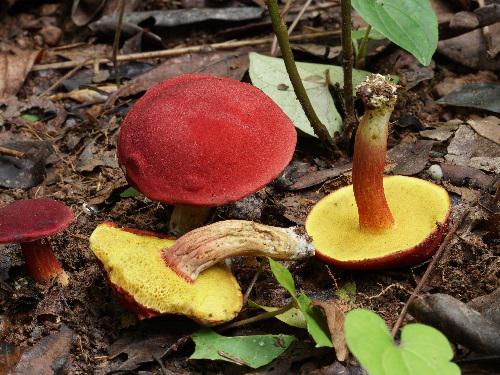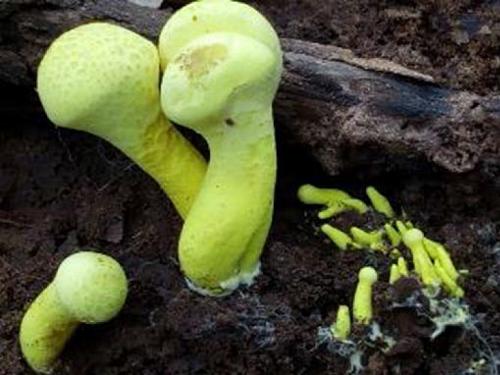Akotchayé Sylvestre Badou
Other projects
9 Nov 2018
Participatory-Based Conservation of Fungi Natural Habitats in the Wari-Maro Forest Reserve in Northern Benin
21 Feb 2022
Biodiversity Assessment of Wild Edible Fungi and Training of Farmers: Effective Methods for in Situ Conservation in the Wari-Maro Forest Reserve
In Benin, natural habitats are considered as reservoirs of various food sources which include wild edible fungi for local populations. The benefits that these natural habitats generate are in terms of food, nutrition, medicinal, socio-economic. However, due to high levels of deforestation and microclimate variability, wild edible fungi are scarce in quantity and quality. One of the potential solutions for their availability is their artificial crops. The project aims to train local population in the cultivation of edible fungi, to reforest natural habitats and to propose a new method of sensitizing local populations on the reforestation of the Wari-Maro forest.

In Benin, natural habitats are considered as reservoirs of various food sources which include wild edible fungi for local populations. The benefits that these natural habitats generate are in terms of food, nutrition, medicinal, socio-economic. However, due to high levels of deforestation and microclimate variability, wild edible fungi are scarce in quantity and quality. One of the potential solutions for their availability is their artificial crops.

Wild higher mushrooms are an integral part of non-timber forest products (NTFPs). Fadeyi et al. (2017), have shown that they ensure the food security of local populations thanks to their high vitamin content especially B, C and D. They are therefore used for therapeutic, nutritional and commercial purposes (Manirakiza 2007). In Benin, about 28 species of wild edible fungi are threatened with extinction (Yorou & De Kesel 2011). This loss is mainly related to the fragmentation of forest which has the direct consequence of the destruction of the natural habitats of the higher mushrooms. In this context, cultivation of edible fungi remains a safe and sustainable method that will allow edible mushrooms to be available in quantity and quality throughout the year. In the same way, this new activity will enable the local populations of the Wari-Maro forest to have another income-generating activity that respects the environment and has multiple benefits. As an example of benefits, the valuation of agricultural residues that will be used as a substrate for the cultivation of edible fungi (De Kesel et al. 2002).
However, artificial cultivation techniques of edible fungi are poorly known to local populations and the commercial opportunities that this income generating activity generates are underestimated and ignored. It is with this in mind that this project aims to:
(A) To train the local populations of the Wari-Maro forest to the cultivation of edible higher mushrooms;
(B) Reforest the degraded natural habitats of edible higher fungi into partner trees, notably Isoberlinia spp and Afzelia africana;
(C) To make a comparative analysis of the disparity of ethnomycological knowledge collected by Yorou & De Kesel (2001) and the new ethnomycological knowledge that will be derived from the new ethnomycological surveys of our project to propose new methods of awareness in the Wari -Maro forest.